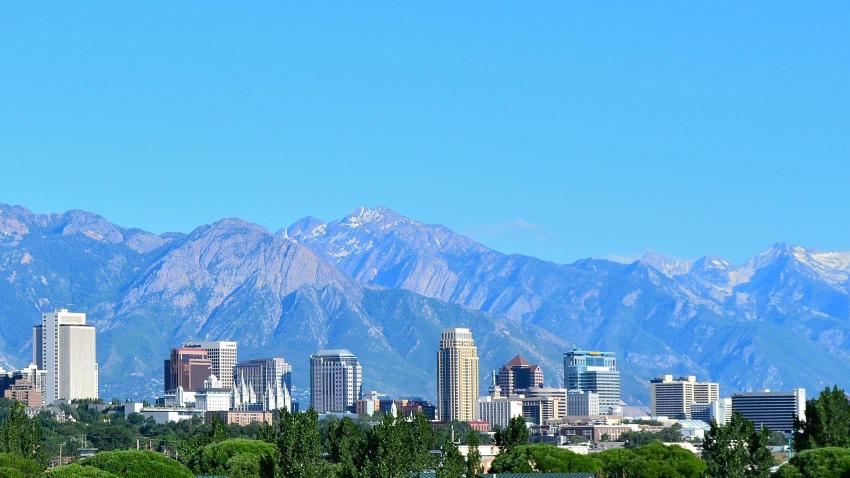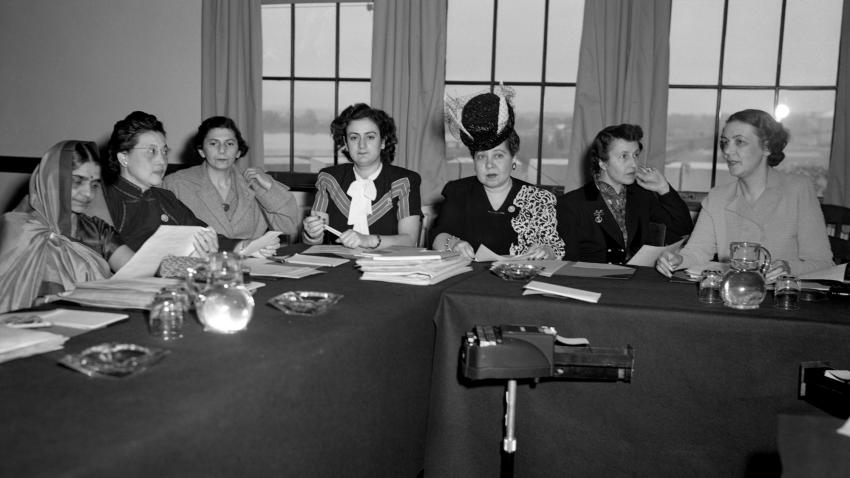These are exciting times for those of us organizing the 68th United Nations Civil Society Conference (#UNCS2019), which will take place from 26 to 28 August 2019 in Salt Lake City, Utah, United States of America. This year, the premiere space for United Nations civil society engagement will address the topic of “Sustainable and Inclusive Cities and Communities”. As we enter the final countdown towards the big days in Salt Lake City, we can proudly say that a series of elements are converging to make this year’s Conference particularly meaningful for the double objective of landing international policy frameworks at the local level and of nourishing twenty-first century multilateralism for the people and by the people of the world.
Cities and communities are the living laboratories where the challenges and opportunities that are central to the 2030 Agenda for Sustainable Development and the Paris Agreement on Climate Change become tangible. Cities and communities concentrate at scale many of the trials and tribulations, but also many of the chances and hopes, that we have to juggle as we translate global agendas for human development into positive local action for improving livelihoods and protecting the planet. This, of course, includes the implementation of Sustainable Development Goal (SDG) 11 on sustainable cities and communities. But it certainly goes well beyond one particular Goal to encompass the other 16 SDGs of the 2030 Agenda, as well as the Paris Agreement objectives.
As of now, we are left with only a decade to ensure that the quest for poverty eradication, equal access to socioeconomic opportunity, environmental justice and impactful climate change action, which are all enshrined in the SDGs, are the new normal for any prosperous society anywhere in the world. By now, nobody dares denying that engaged and empowered individuals and civil society are as crucial as bold governmental action and private-sector leadership in this race for a life of dignity for all within planetary boundaries.
Cities are now responsible for 70 per cent of global greenhouse gas emissions, but they also generate 80 per cent of the world’s gross domestic product.
Urbanization is unfolding as one of the megatrends in twenty-first century demographics, and it is happening at a particularly unprecedented scale in the Global South, where the majority of the world’s youth live. According to United Nations statistics, 1 in 7 of the world’s people, close to 1 billion, live in slums and informal settlements. Cities are now responsible for 70 per cent of global greenhouse gas emissions,1but they also generate 80 per cent of the world’s gross domestic product.2 Moreover, 68 per cent of the global population is expected to live in urban environments by 2050,3and 88 per cent of that urban transformation is projected to take place in Africa and Asia.4 Against this backdrop, many academic and multilateral sources estimate that in the next couple of decades, we will be building more urban infrastructure than we constructed in the past 20 centuries. This unprecedented scale of urbanization is also providing unprecedented opportunities to address past socioeconomic and environmental mistakes, and correct the course of our individual and collective choices and omissions. Individual and civil society action must be strengthened to maximize the transformative potential of these opportunities in the urban era.
The Planning and Host Committees for #UNCSC2019 have decided to break down the overall Conference topic of “Sustainable and Inclusive Cities and Communities” into a series of interconnected themes that will be addressed at thematic sessions, including: inclusive cities and communities; climate change; peaceful societies; opportunities and economic success for youth; infrastructure and natural resource use; emerging technologies and innovation; impact investment; education for inclusive communities; civil society engagement in the implementation and monitoring of, and reporting on, SDG 11; and United Nations reform to better serve the people.
The multisectoral, multinational and multicultural nature of the thousands of participants expected at #UNCSC2019 will provide us with a phenomenal occasion to identify and disseminate shared challenges and scalable solutions towards robust governance as well as institutional, policy and financial frameworks that enable individuals and civil society to take transformative action. Moreover, as we grapple with the so-called “localization” of international frameworks, #UNCSC2019 will mark the first-ever United Nations civil society conference to be formally co-organized, from an institutional standpoint, between the United Nations and a local government. We will learn how the vertical integration of action between different spheres of government and access by local government to adequate institutional and financial resources are among the must-have conditions for unleashing the full potential of cities and communities to tackle global challenges with local relevance and impact. In addition, the Youth Declaration that is emerging from the highly inspirational youth leadership track of #UNCSC2019 will be targeting climate change action for sustainable and inclusive cities and communities.
Last but not least, at a moment when knowledge about and respect for multilateralism as a form of peaceful understanding among nations and peoples is experiencing dangerous decay, #UNCSC2019 will mark an additional “first”, as well as offer space for collective reflection. The 68th United Nations Civil Society Conference will be the first United Nations conference held outside of the Organization’s New York headquarters since the San Francisco Conference in 1945. This will give many participants the occasion to experience such a conference for the first time and bring the United Nations closer to the people, which has been a prominent characteristic of the previous civil society conferences. This year, on the eve of the 75th anniversary of the United Nations, to be commemorated in 2020, #UNCSC2019 will provide space for the much-needed collective reflection about what type of multilateralism we need in the twenty-first century in order to embrace and curate the positive force in communities and civil society movements in the wake of growing populism and anti-multilateralism.
#UNCSC2019 will have the honour of presenting the Conference’s Outcome Document to H.E. María Fernanda Espinosa Garcés, President of 73rd session of the United Nations General Assembly, when she joins us in Salt Lake City—yet another first-of-its-kind occasion in the history of United Nations civil society conferences, and one for which we are truly grateful to Ms. Espinosa. This opportunity will allow #UNCSC2019 to officially convey conference outcomes to the General Assembly in the year its President chose to focus on making the United Nations relevant to all people and fostering global leadership and shared responsibilities for peaceful, equitable and sustainable societies. Also participating this year is the Special Adviser on Preparations for the Commemoration of the Seventy-Fifth Anniversary of the United Nations, Fabrizio Hochschild. He will attend the thematic session dedicated to United Nations reform.
As preparations towards the tenth session of the World Urban Forum (WUF10), to be held in Abu Dhabi, United Arab Emirates, in February 2020, continue, #UNCSC2019 is proud of its partnership with the United Nations Human Settlements Programme (UN-Habitat), which convenes the Forum and is the United Nations system focal point for SDG 11. World Urban Forums are technical and non-legislative global meetings, held every two years since 2002. The General Assembly recognizes the World Urban Forum as the main dialogue arena for policymakers, non-governmental organizations, experts and practitioners in the field of sustainable urban development. With this collaboration, we are keen on fostering mutually reinforcing action towards #UNCSC2019 and WUF10, as well as on seeking avenues for the WUF10 preparatory process to integrate #UNCSC2019 outcomes.
Sustainable and inclusive cities and communities do not take shape overnight. They are the result of very complex but also highly rewarding social processes; they are the right and the responsibility of each and every one of us.
All of us engaged in the organization of #UNCSC2019 are determined to ensure a legacy for the Conference beyond August 2019. But this task is not exclusive to the #UNCSC2019 Planning and Hosting Committee, nor to me as Conference Chair. It is a huge opportunity to all who care about the meaningful engagement of civil society towards sustainable and inclusive cities and communities. It is also a unique chance to keep the place and the space for civil society engagement in the United Nations meaningful and vibrant.
This is the civil society conference of the United Nations. It is our space, driven and shaped by civil society representatives. We warmly encourage all readers to share feedback about the draft UNCSC2019 Conference Outcome Document, which is available online, so that the values, commitments and calls to action it will finally enshrine can reflect the plurality of socioeconomic and environmental conditions needed for all human beings to thrive in sustainable and inclusive communities, respectful of Mother Earth. We would also like to invite you to provide feedback on the draft UNCSC2019 Youth Declaration on Climate Change Action for Sustainable Cities and Inclusive Communities, which will soon become available online and ultimately be released in its final version just a few weeks before United Nations Secretary-General António Guterres gathers governmental, private sector and civil society leaders to the 2019 Climate Action Summit in New York on 23 September. Because we are equally keen on making sure that the conference legacy nourishes and empowers the personal sphere of action of each of us in the cities and communities in which we live, we are completing the outcomes of #UNCSC2019 with a Toolkit for Action, which we are crowdsourcing through social media and conference delegates. Please stay tuned and contribute!
Sustainable and inclusive cities and communities do not take shape overnight. They are the result of very complex but also highly rewarding social processes; they are the right and the responsibility of each and every one of us. Engage in the elaboration of #UNCSC2019 outcomes to inspire and be inspired by others—and if you can, join us in Salt Lake City to tell us what you are doing to contribute to the positive transformation of your city and your community! We are counting on you and want to learn from you!
Notes
1United Nations Human Settlements Programme (UN-Habitat), “Cities and Climate Change”, Global Report on Human Settlements 2011 (London, Washington, DC, 2011), pp. 51-52.
2 The World Bank, “3 Big Ideas to Achieve Sustainable Cities and Communities”, 31 January 2018.
3United Nations Department of Economic and Social Affairs, World Urbanization Prospects: The 2018 Revision (New York, 2019), pp. xix, 1, 10.
4Ibid., p. 25.
The UN Chronicle is not an official record. It is privileged to host senior United Nations officials as well as distinguished contributors from outside the United Nations system whose views are not necessarily those of the United Nations. Similarly, the boundaries and names shown, and the designations used, in maps or articles do not necessarily imply endorsement or acceptance by the United Nations.




